Foundation Trust appoints new Chair
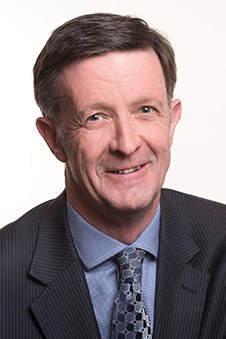
Mr Stephen Higgs
Mr Stephen Higgs has been appointed as Chair of the University of Otago Foundation Trust. Pro-Chancellor of the University and a current Trustee, Mr Higgs replaces Dr John Ward who was Chair of the Trust from 2009.
The Vice-Chancellor Professor Harlene Hayne says, “the University acknowledges with thanks Dr Ward's sterling work as Chair of the Trust. We are very grateful for his wise stewardship and strong leadership over many years which has contributed to a significant increase in the value of the Foundation Trust's investments and we know that Mr Higgs will continue with this excellent work.”
Mr Higgs says, “I would like to also acknowledge the great work that Dr Ward did in his role as the previous Chair of the Trust.”
Established in 2002 the University of Otago Foundation Trust is registered to receive and administer all philanthropic donations and bequests gifted to the University. As an umbrella trust it comprises over 400 individual trust funds, each with specific terms and conditions.
Last year donations exceeded $6.8 million which reflects a growing culture of philanthropy within the wider University community. The Trust also achieved a record return on investment of 19.7 per cent, meaning the Trust's total income for the year was $36.4 million. This was an exceptional result and means an increase in the level of support provided to the many projects funded at the University including chairs, fellowships, research, scholarships and awards. The Trust has total assets of more than $240 million.
Mr Higgs says the Trustees are appointed to ensure that the many extremely valuable University projects are well funded, and the Trust's investments are well managed.
He says he's looking forward to the role as, “it's nice to be playing a part in the management of the funds to ensure some amazing work is carried out. I'm happy to have been appointed to chair the meetings and guide the team in the future.
“Our role is really to oversee the funds responsibly so that the money is there to support the staff, students and excellent research being carried out right across the University that many, including our alumni, support.”
Apart from a six-month stint working in Melbourne, Mr Higgs has spent his entire life in Dunedin. He is a previous partner in Dunedin business consulting firm Polson Higgs.
He describes Dunedin as a “special little city” and says in the last few years it has progressed very positively, noting that the University of Otago has been one key factor in that success.
Mr Higgs has a BCom from the University. Of his time at Otago he says, “university is a very special time where, as well as obtaining a quality education, you make many friends and I'm pleased to say I still have contact with many of them to this day.”
He is a car enthusiast and loves to watch motor racing. He owns two Triumph sports cars and, along with his wife, is an active member of the local Triumph TR car club.
Major donation from Sargood Bequest to Professor Michael Baker
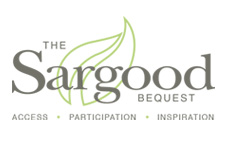
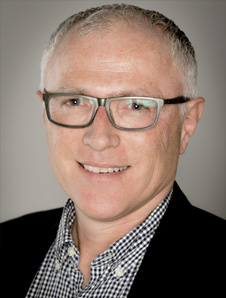
Professor Michael Baker, Department of Public Health, University of Otago, Wellington
A generous grant of $50,000 has been made to Professor Michael Baker of the Department of Public Health, University of Otago, Wellington, by the Trustees of the Sargood Bequest.
Professor Baker is a public health physician and epidemiologist whose research and advice has helped inform Government policy on the New Zealand response to the COVID-19 pandemic. He is a member of the Ministry of Health COVID-19 Technical Advisory Group.
The $50,000 grant from the Sargood Bequest will go towards the Michael Baker COVID-19 Research Fund, which has been established within the University of Otago Foundation Trust.
Sargood Bequest Trustee Dr Simon Ewen says Professor Baker has been instrumental in informing the New Zealand Government in the control of COVID-19.
“The Sargood Bequest is honoured to have this opportunity to recognise and contribute to the outstanding work and ongoing national guidance given by Professor Michael Baker and his team during the COVID-19 pandemic in New Zealand,” says Dr Ewen.
“The evidence-based technical advice to the Government, combined with authoritative and informative media briefings proffered by Professor Michael Baker and his team have instilled confidence and compliance in the New Zealand public.
“This grant further cements a strong historical relationship between the Sargood Bequest, the Otago region, and specifically with the University of Otago."
Professor Baker says he is very grateful to receive this generous grant from the Sargood Bequest.
“These funds will be hugely helpful to us in supporting a very active research programme we have started on COVID-19,”
- Professor Michael Baker
“These funds will be hugely helpful to us in supporting a very active research programme we have started on COVID-19,” he says.
“We are emerging from a period of very intense work on the pandemic response. This funding will allow us to shift our focus onto describing and analysing the impact of COVID-19 along with the unique New Zealand response. There are important scientific and policy lessons from this momentous event that need to be documented so that they can inform improved pandemic responses internationally and in the future.”
The Sargood Bequest is a charitable trust founded in 1939 by Sir Percy Sargood of the firm Sargood Son & Ewen, based in Dunedin. The Sargood Bequest actively supports community groups and individuals throughout New Zealand, championing the values of access, participation and inspiration.
University of Otago Director of Development and Alumni Relations Shelagh Murray says “the University is extremely grateful to the Sargood Bequest for this generous donation, which will help Professor Baker continue his important research into COVID-19.
“This research benefits all New Zealanders and adds to the global knowledge of the virus and its effects on people and communities around the world.”
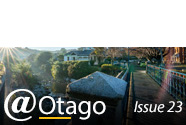
Also in this issue...
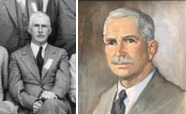
From the Archives – Discovery of strong family ties to the University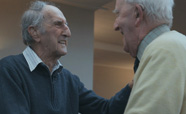
Why We ♥ Otago – Dental reunion film 'bittersweet' 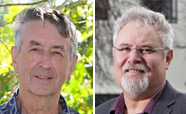
Alumni in the news 
Otago alumni central to Fiji's pandemic response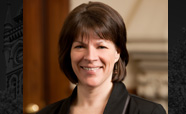
Otago and COVID-19: Playing our part (video)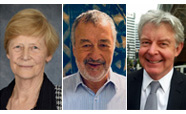
Top honours for Otago alumni
Your Story - A long and wonderful journey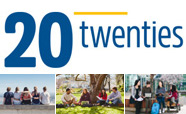
Opportunities for alumni – Young Alumni Awards
Networks & events
Lecture hot picks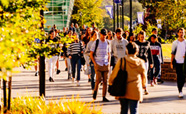
Supporting Otago – University community boosts Pūtea Tautoko support fund
